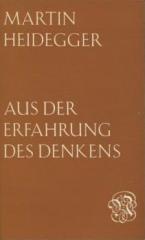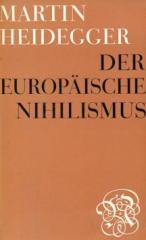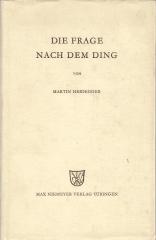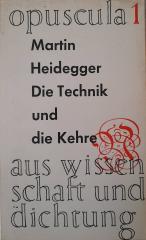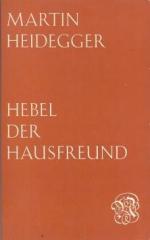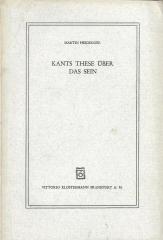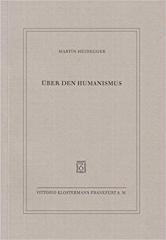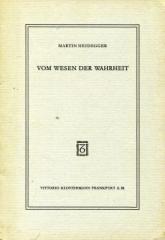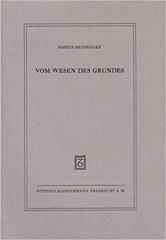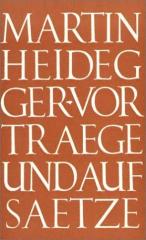Martin Heidegger
Martin Heidegger (1889–1976) was a German philosopher and one of the most influential thinkers of the 20th century, best known for his work Being and Time (Sein und Zeit, 1927), which established a new dimension of ontology – the analysis of being through the existential dimension of man (Dasein). He was born in Messkirch and studied theology and philosophy. He was a professor at the University of Freiburg, where he took over the chair from his mentor Edmund Husserl, the founder of phenomenology.
In Being and Time, Heidegger introduces an existential analysis of human existence, emphasizing the concept of “being towards death” and authenticity. The question of the meaning of being becomes central to his philosophy. Later, he turns to the so-called “late Heidegger”, where he is more concerned with language, poetry and the relationship of man to technology and the essence of being. Works such as What Does It Mean to Think?, Introduction to Metaphysics and The Question of Technology reflect this phase.
Heidegger's philosophy was extremely influential, but his membership in the Nazi Party (NSDAP) in 1933 sparked controversy and ethical debates surrounding his intellectual contributions.
Despite this, he remains a key figure in existentialism, hermeneutics, and contemporary philosophy. His ideas have had a strong influence on thinkers such as Sartre, Derrida, and Gadamer.
Titles in our offer
Aus der Erfahrung des Denkens
"From the experience of thinking" is a collection of short philosophical notes, aphorisms and meditations that Heidegger writes in the later phase of his creativity. The work is not a systematic philosophical exposition but a series of thought fragments a
Der europäische Nihilismus
„Der europaische Nihilismus“ je zbirka Hajdegerovih predavanja i beleški iz 1930-ih i 1940-ih, u kojima analizira nastanak i značenje nihilizma u Evropi.
Die Frage nach dem Ding
„Die Frage der Dinge“, eine Sammlung von Vorlesungen, die Heidegger 1935/36 hielt, behandelt die grundlegende philosophische Frage: Was ist los? Sein Ausgangspunkt ist Kants Kritik der reinen Vernunft, doch Heidegger geht noch weiter und möchte die Natur
Die Technik und die Kehre
Technique and the Turn is a collection of essays published in 1954, one of Heidegger's key works on the problem of technique. Heidegger analyzes the essence of technique and warns that modern technology is not just a set of means, but has a deep ontologic
Hebel der Hausfreund
„Hebel – der Hausfreund“ je zasnovan na predavanju Martina Hajdegera 1957. godine, u kojem se osvrće na lik i delo nemačkog pisca Johana Petera Hebela.
Kants these über das Sein
Kantova teza o biću, predavanje Martina Hajdegera 1930. godine, fokusira se na analizu Kantove tvrdnje da je biće zapravo postavljanje (Setzung) – to jest čin postavljanja ili potvrđivanja putem prosuđivanja.
Über den Humanismus
U delu „Pismo o humanizmu“ (1947), Martin Hajdeger odgovara na pitanje Žana Bofrea o značenju humanizma, iznoseći kritički stav prema tradicionalnom humanizmu i nudeći novo razumevanje ljudskog postojanja.
Vom Wesen der Wahrheit
Vom Wesen des Grundes
Vorträge und Aufsätze
Die 1954 erschienene Sammlung vereint einige der bedeutendsten kürzeren Texte Heideggers aus seiner mittleren und späten Schaffensperiode. In diesen Texten entwickelt Heidegger Schlüsselideen zu Technologie, Kunst, Sprache und der Beziehung des Menschen z
